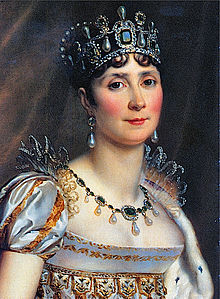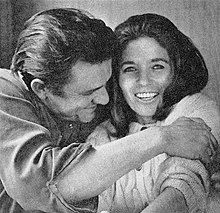Dear Zazie, Here is today’s Lovers’ Chronicle from Mac Tag. Rhett
The Lovers’ Chronicle
Dear Muse,
© copyright 2020 mac tag/cowboy coleridge all rights reserved
apropos
1200 miles
a world apart
but necessary
and perhaps
to get closer
to those moments
that tell you
what need not be said
© copyright 2019 mac tag/cowboy coleridge all rights reserved
how about this
for a choice…
those moments
when your arm
drapes across me
before we fall asleep
it tells me
what you do not say
just want to feel
your heartbeat
and fall asleep
whisperin’ your name
© copyright 2018 mac tag/cowboy coleridge all rights reserved
“You shouldn’t stare.”
well, you should not look like that
“Given all of the available choices
why does a man choose solitude?”
it is like one of my tailored suits
i wear it well
“Is this really what you want?
Living in shadows? Alone?”
i try not to think about it
“Why, because you would stop?”
i believe, i have no choice
“You’re wrong. We all have choices.”
© copyright 2017 mac tag/cowboy Coleridge all rights reserved
tremulous night
lucid visions
yet not so
who was that woman
what was her name
oh yes right there
just, just like that
© copyright 2016 mac tag all rights reserved
tristo a me,
io t’ho insegnato a cantare,
e tu voui suonare
© copyright 2016 mac tag all rights reserved
Today is the birthday of Joséphine de Beauharnais (born Marie-Josèphe-Rose Tascher de la Pagerie; Les Trois-Îlets, Martinique 23 June 1763 – 29 May 1814 Rueil-Malmaison, France); the first wife of Napoleon I, and thus the first Empress of the French as Joséphine.
Her marriage to Napoleon I was her second; her first husband, Alexandre de Beauharnais, was guillotined during the Reign of Terror, and she was imprisoned in the Carmes prison until five days after his execution. Her two children by Beauharnais became significant to royal lineage. Through her daughter, Hortense, she was the maternal grandmother of Napoleon III. Through her son, Eugène, she was the great-grandmother of later Swedish and Danish kings and queens. The reigning houses of Belgium, Norway and Luxembourg also descend from her. She did not bear Napoleon any children; as a result, he divorced her in 1810 to marry Marie Louise of Austria.
Joséphine was the recipient of numerous love letters written by Napoleon, many of which still exist. Her Château de Malmaison was noted for its magnificent rose garden, which she supervised closely, owing to her passionate interest in roses, collected from all over the world.

Madame de Beauharnais had affairs with several leading political figures, including Paul François Jean Nicolas Barras. In 1795, she met Napoleon Bonaparte, six years her junior, and became his mistress. In a letter to her in December, he wrote, “I awake full of you. Your image and the memory of last night’s intoxicating pleasures has left no rest to my senses.” In January 1796, Napoleon Bonaparte proposed to her and they were married on 9 March. Until meeting Bonaparte, she was known as Rose, but Bonaparte preferred to call her Joséphine, the name she adopted from then on.

The marriage was not well received by Napoleon’s family, who were shocked that he had married an older widow with two children. His mother and sisters were especially resentful of Joséphine, as they felt clumsy and unsophisticated in her presence. Two days after the wedding, Bonaparte left Paris to lead a French army into Italy. During their separation, he sent her many love letters. In February 1797, he wrote: “You to whom nature has given spirit, sweetness, and beauty, you who alone can move and rule my heart, you who know all too well the absolute empire you exercise over it!”
Joséphine, left behind in Paris, in 1796 began an affair with a handsome Hussar lieutenant, Hippolyte Charles. Rumors of the affair reached Napoleon; he was infuriated, and his love for her changed.
In 1798, Napoleon led a French army to Egypt. During this campaign, Napoleon started an affair of his own with Pauline Fourès, the wife of a junior officer, who became known as “Napoleon’s Cleopatra.” The relationship between Joséphine and Napoleon was never the same after this. His letters became less loving. No subsequent lovers of Joséphine are recorded, but Napoleon had sexual affairs with several other women. In 1804, he said, “Power is my mistress.”
In December 1800, Joséphine was nearly killed in the Plot of the rue Saint-Nicaise, an attempt on Napoleon’s life with a bomb planted in a parked cart. On December 24, she and Napoleon went to see a performance of Joseph Haydn’s Creation at the Opéra, accompanied by several friends and family. The party travelled in two carriages. Joséphine was in the second, with her daughter, Hortense; her pregnant sister-in-law, Caroline Murat; and General Jean Rapp. Joséphine had delayed the party while getting a new silk shawl draped correctly, and Napoleon went ahead in the first carriage. The bomb exploded as her carriage was passing. The bomb killed several bystanders and one of the carriage horses, and blew out the carriage’s windows; Hortense was struck in the hand by flying glass. There were no other injuries and the party proceeded to the Opéra.

The coronation ceremony, officiated by Pope Pius VII, took place at Notre Dame de Paris, on 2 December 1804. Following a pre-arranged protocol, Napoleon first crowned himself, then put the crown on Joséphine’s head, proclaiming her empress.
Shortly before their coronation, there was an incident at the Château de Saint-Cloud that nearly sundered the marriage between the two. Joséphine caught Napoleon in the bedroom of her lady-in-waiting, Élisabeth de Vaudey, and Napoleon threatened to divorce her as she had not produced an heir. Eventually, however, through the efforts of her daughter Hortense, the two were reconciled.
When after a few years it became clear she could not have a child, Napoleon, while still loving Joséphine, began to think very seriously about the possibility of divorce. The final die was cast when Joséphine’s grandson Napoléon Charles Bonaparte who had been declared Napoleon’s heir, died of croup in 1807. Napoleon began to create lists of eligible princesses. At dinner on 30 November 1809, he let Joséphine know that—in the interest of France—he must find a wife who could produce an heir.
Joséphine agreed to the divorce so the Emperor could remarry in the hope of having an heir. The divorce ceremony took place on 10 January 1810 and was a grand but solemn social occasion, and each read a statement of devotion to the other.


After the divorce, Joséphine lived at the Château de Malmaison, near Paris. She remained on good terms with Napoleon, who once said that the only thing to come between them was her debts. (Joséphine remarked privately, “The only thing that ever came between us was my debts; certainly not his manhood.”—Andrew Roberts, Napoleon)
Joséphine died in Rueil-Malmaison on 29 May 1814, soon after walking with Tsar Alexander in the gardens of Malmaison. She was buried in the nearby church of Saint Pierre-Saint Paul in Rueil. Her daughter Hortense is interred near her.
Napoleon learned of her death via a French journal while in exile on Elba, and stayed locked in his room for two days, refusing to see anyone. He claimed to a friend, while in exile on Saint Helena, that “I truly loved my Joséphine, but I did not respect her.” Despite his numerous affairs, eventual divorce, and remarriage, the Emperor’s last words on his death bed at St. Helena were: “France, the Army, the Head of the Army, Joséphine.”(“France, l’armée, tête d’armée, Joséphine”).
Today is the birthday of June Carter Cash ( Valerie June Carter, Maces Spring, Virginia; June 23, 1929 – May 15, 2003 Nashville); singer, dancer, songwriter, actress, comedian, and author who was a member of the Carter Family and the second wife of Johnny Cash. She played the guitar, banjo, harmonica, and autoharp, and acted in several films and television shows. Carter Cash won five Grammy Awards and was inducted into the Christian Music Hall of Fame in 2009.
In the early 1960s, Carter Cash wrote the song “Ring of Fire”, which would later go on to be a hit for her future husband. She co-wrote the song with fellow songwriter, Merle Kilgore. June wrote the lyrics about her relationship with Cash and she offered the song to her sister Anita, who would be the first singer to record the song. In 1963, Cash recorded the song with the Carter Family singing backup, and added mariachi horns. The song would become a number one hit and would go on to become one of the most recognizable songs in the world of country music.
Her first notable studio performance with Cash occurred in 1964 when they sang a duet on “It Ain’t Me Babe”, a Bob Dylan composition, that was released as a single and on Cash’s album Orange Blossom Special. In 1967, the two found more success with their recording of “Jackson”, which was followed by a collaboration album, Carryin’ On with Johnny Cash and June Carter. All these releases predated their marriage. She continued to work with Cash on record and on stage for the rest of her life, recording a number of duets with Cash for his various albums and being a regular on The Johnny Cash Show from 1969-1971 and on Cash’s annual Christmas specials. After Carryin’ On, Carter Cash recorded one more direct collaboration album, Johnny Cash and His Woman, released in 1973, and along with her daughters was a featured vocalist on Cash’s 1974 album The Junkie and the Juicehead Minus Me. She also shared sleeve credit with her husband on a 2000 small-label gospel release, Return to the Promised Land.
Carter Cash was married three times. She was married first to honky-tonk singer Carl Smith from July 9, 1952, until their divorce in 1956. Together they wrote “Time’s A-Wastin”. Her second marriage was to Edwin “Rip” Nix, a former football player, police officer, and race car driver, on November 11, 1957. In 1968, Johnny proposed to June during a live performance at the London Ice House in London, Ontario, Canada. They married on March 1 in Franklin, Kentucky, and remained married until her death in May 2003, just four months before Cash died.

Carter Cash was played by Reese Witherspoon in Walk the Line, a 2005 biographical film of Johnny Cash (played by Joaquin Phoenix). The film largely focused on the development of their relationship over the course of 13 years, from their first meeting to her acceptance of his proposal of marriage. Witherspoon performed all vocals for the role, singing many of June’s famous songs, including “Juke Box Blues” and “Jackson” with Phoenix. Witherspoon won an Academy Award, Golden Globe, BAFTA and Screen Actors Guild Award for Best Actress in the role.
Mac Tag



23/06/2016 at 3:25 pm Permalink
Rosanne Cash “A feathers not a Bird”
https://youtu.be/v5PzW1ZkGlI
Two greats created another